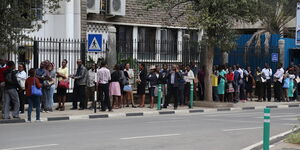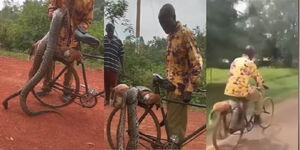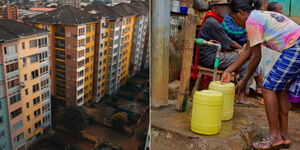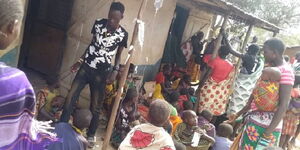Kenya is now officially free of Mpox, the Ministry of Health announced, with the country reporting no new cases following the recovery of its sole patient. This development comes as a relief amid the ongoing battle against a lethal strain of the virus in Eastern Africa.
Public Health Principal Secretary Mary Muthoni revealed that the only reported case in Kenya was that of a truck driver who developed a generalized rash at Taveta One Stop Border Point on July 22, 2024. The driver, whose condition was detected by Port Health Officers, was immediately isolated at Taveta Sub-County Hospital.
Initial clinical assessments pointed to either chickenpox or Mpox. Subsequent tests on skin lesion samples, conducted at the National Public Health Laboratories and validated by other reference laboratories, confirmed the presence of Mpox on July 29, 2024. The patient has since recovered fully.
Despite this success, Kenya remains vigilant. “Due to the infectiousness of Mpox and in accordance with international response guidelines, we began tracing all close contacts of the patient,” stated PS Muthoni.
“This includes individuals at his workplace, the hospital where he was treated, and along his travel routes.”
The recovered patient had traversed Uganda, Kenya, Tanzania, and Rwanda, raising concerns about potential cross-border transmission. Kenya is now collaborating with neighbouring countries to identify any additional contacts and potential cases.
The urgency is being pushed by the ongoing outbreak in the Democratic Republic of the Congo (DRC), which has resulted in nearly 500 deaths since January.
The DRC has reported over 12,300 cases in 2024 alone, with the virus spreading rapidly in remote areas and cities. This outbreak has extended to countries such as Ivory Coast, Burundi, Rwanda, and Uganda, causing widespread alarm.
World Health Organization Director General Tedros Adhanom Ghebreyesus has hinted at convening a panel to consider declaring the outbreak an international public health emergency. Such a declaration would mobilise global resources and attention to combat the virus.
Kenya's Ministry of Health has acted swiftly, deploying rapid response teams to affected counties for detailed investigations. Public Health Emergency Operation Centres have been activated nationwide, and incident management teams are coordinating response activities.
“Our monitoring of the outbreak's evolution in neighbouring countries is ongoing,” the Ministry stated. “We are prepared to adjust our response measures to mitigate the risk of regional transmission.”
To further curb the spread, the Ministry has advised all counties to educate the public on preventive measures. These include frequent hand washing with soap and water or hand sanitiser, seeking early treatment when infected, and avoiding close contact with sick individuals.
Kenya's proactive approach and stringent measures have so far proven effective in preventing the spread of Mpox within its borders. However, the battle is far from over, as regional cooperation and vigilance remain crucial.
“We must remain cautious and prepared,” PS Muthoni emphasized. “Our success in containing Mpox should not lead to complacency. Continued vigilance and cooperation are essential in safeguarding public health.”












